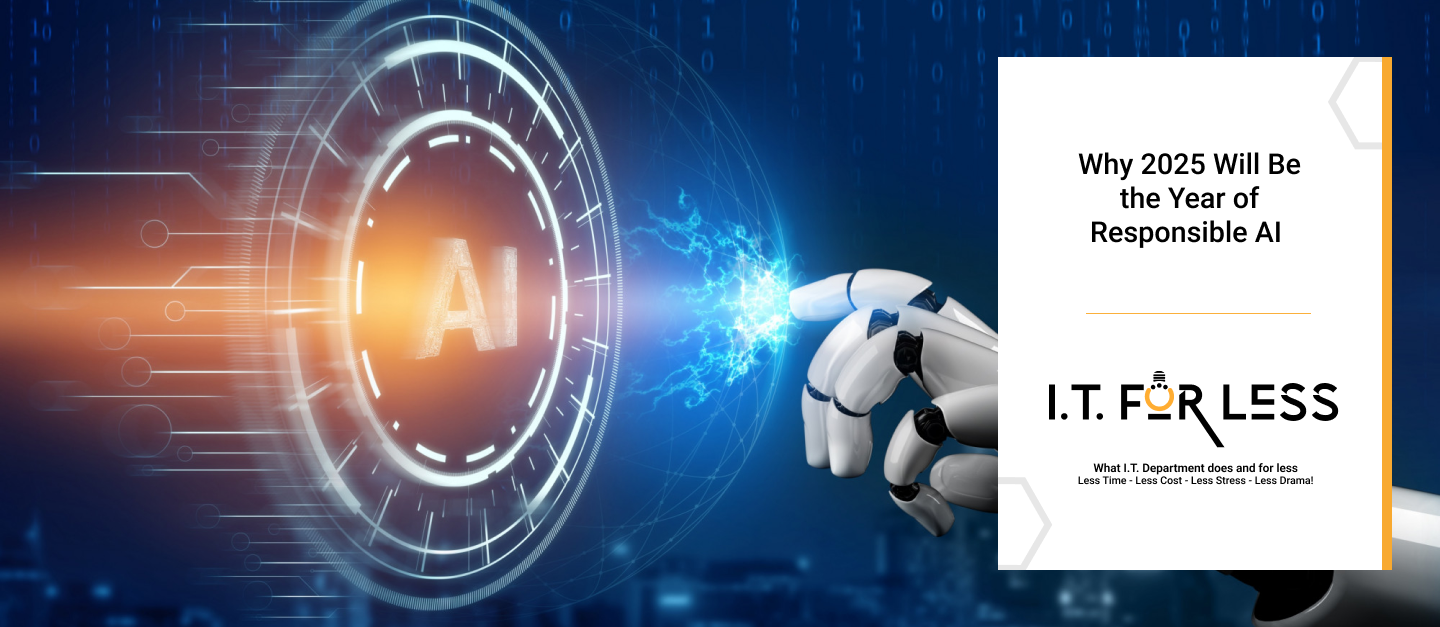Artificial intelligence is no longer just a competitive advantage — it’s becoming a regulated, ethical, and strategic necessity. As businesses continue to adopt AI at scale, 2025 is shaping up to be the year when responsible AI and “Responsible AI in 2025” moves from theory to execution. Driven by new global regulations, advancing governance frameworks, and rising public expectations, organizations are being pushed to prove that their AI systems are not only powerful but also fair, transparent, and accountable.
The Shift from Innovation to Accountability
In earlier years, AI development focused on innovation speed — how quickly systems could automate tasks or generate insights. But as AI begins influencing hiring, lending, healthcare, and security, the consequences of misuse have become impossible to ignore. Governments are responding with landmark policies like the EU AI Act and emerging U.S. frameworks from NIST and the White House Office of Science and Technology Policy, which prioritize safety, transparency, and bias prevention.
This shift is forcing organizations to mature their approach. It’s no longer enough to deploy models quickly — they must be explainable, auditable, and ethically sound if they are to uphold the principles of Responsible AI in 2025.
Why Responsible AI Matters Now More Than Ever
Responsible AI is about more than compliance; it’s about trust. Customers want assurance that AI systems treat them fairly. Regulators demand accountability. And investors increasingly link ethical governance with brand reputation and long-term value. As we project forward, Responsible AI in 2025 will stand as a benchmark year.
In 2025, companies that demonstrate strong AI oversight will lead the market — not just because they meet standards, but because they inspire confidence. Businesses that fail to do so risk penalties, reputational harm, and loss of consumer trust.
Building the Foundation for Responsible AI
To embrace responsible AI, organizations need clear governance structures and documented accountability. This begins with assessing where AI is used, defining ownership across teams, and establishing principles around data quality, fairness, and privacy. Ongoing monitoring ensures systems stay aligned with both ethical and regulatory expectations as conditions evolve, and this will be critically important for maintaining Responsible AI in 2025.
A culture of responsible innovation is equally critical. Training teams to recognize bias, explain model outputs, and document decisions embeds responsibility into everyday workflows — turning governance into a shared business advantage.
The Year Ahead
2025 will mark a turning point in AI maturity. Enterprises that build ethical, transparent, and well-governed AI ecosystems will lead confidently in a landscape where trust is the ultimate differentiator. Responsible AI isn’t slowing innovation — it’s ensuring that progress remains sustainable, secure, and human-centered.
Partner for Responsible Innovation
Partner with I.T. For Less today and take the first step toward building a responsible, future-ready AI strategy that keeps your IT flowing as effortlessly as your ambition — ethical, compliant, and built for lasting impact.
